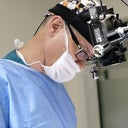I have Raynaud's Syndrome (bad circulation), am I at risk for necrosis after a rhinoplasty?
I have Raynold's Syndrome (bad circulation to my hands, feet, and nose), and I've heard that an open rhinoplasty approach will cut through an artery in the nose tip, which can potentially lead to necrosis for someone with bad circulation to the nose, like myself. Any information about this risk would be very helpful, thank you!






